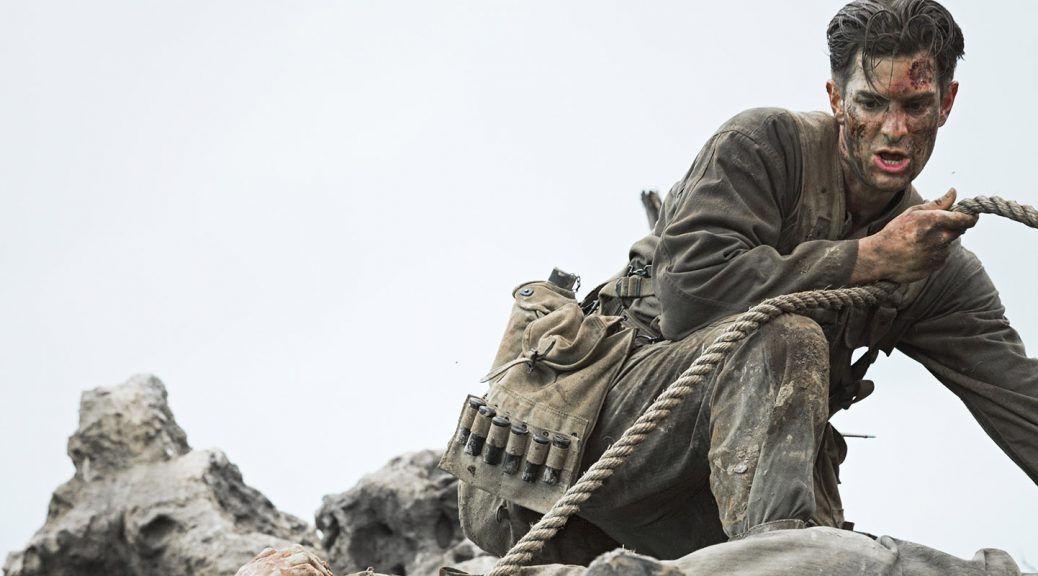
Why were the Ten Commandments so important to Desmond Doss – particularly during times of trouble on the battlefield at Okinawa?
By Jarrod Stackelroth.
An estimated 20 million troops were killed in World War II. It was a dangerous and deadly conflict, even for civilians. In fact, there are stories of soldiers being ordered to target medics, to dishearten and demoralise their enemies.
So you could forgive a non-combatant for carrying a weapon . . . just for self-defence, right? And yet Private Desmond Doss refused. He refused to even touch a gun. Why? What made his conviction so strong that he risked ridicule, rebuke and even discharge to keep it?
Desmond Doss was committed to keeping the Ten Commandments (found in the Old Testament in the Bible) — particularly the sixth one. As a boy, an artist’s impression of the Ten Commandments sat in the family’s living room and had a formative impact on Doss’ life — especially number six: you shall not kill. In the documentary The Conscientious Objector, Doss’ sister, Audrey Miller spoke about how Doss focussed on “Thou shalt not kill,” which was illustrated with an image of Cain and Abel. “He always pointed to it,” she said. “He was just a clever boy.”
Doss reflected on the image and what it meant to him. “To me, it said, ‘Desmond, if you love me [God], you won’t kill.’ As a result, I didn’t want to ever take life.”
Knowing the human propensity for violence and the temptation of using a weapon if he had one in a sticky situation, Doss preferred to avoid any contact with guns.
This is the other Commandment Doss made a point of sticking to: “Remember the Sabbath Day and Keep it holy” — hard to do in the army.
Doss fought for his right to keep Sabbath, even under threat of court martial. Eventually, on Saturdays he was allowed to practice his religion without duties, but this led others in his unit to think he was getting special privileges. He would get a pass for the Sabbath so he could go attend a local Seventh-day Adventist church. But he would get all the tough details on Sunday.
Yet Doss believed it so strongly, that he persevered through the war and neither threats nor pleadings could wear him down.
But why were the Ten Commandments so important to Doss? And what are they?
Unlike other laws and traditions that are recorded in the Bible, the author of Exodus records that God Himself wrote the Commandments on stone and gave them to Moses. Yet these laws were important even before Moses received them in the desert. The fourth Commandment mentions the Sabbath, a day of rest and remembrance and a time Seventh-day Adventists use to spend with family members and with God is mentioned in the fourth Commandment.
Do not kill we’ve mentioned already. Other Commandments include: do not steal, do not commit adultery, don’t worship idols, honour your parents. These are all good things; things that are still important today.
Some people argue that because Jesus came and died for us, we no longer need the Commandments. But Jesus said, “If you love me, keep my commandments.” He also said, that he didn’t come to do away with the law but to fulfil it.
People often paint the Ten Commandments as a list of things that an angry God is telling you not to do. But if we follow the Commandments, like Doss did, we are honouring God and other people. They protect us from doing things that will hurt others or ourselves. If we decided to intentionally not follow the Ten Commandments, like choosing to do the opposite at traffic signals, disaster would ensue; we’d be lying, stealing, cheating, killing machines.
King Solomon said “Fear [honour, reverence, respect] God and keep his Commandments; for this is the whole duty of man.”
It is a duty that Doss understood. And a duty that he firmly stuck to.
